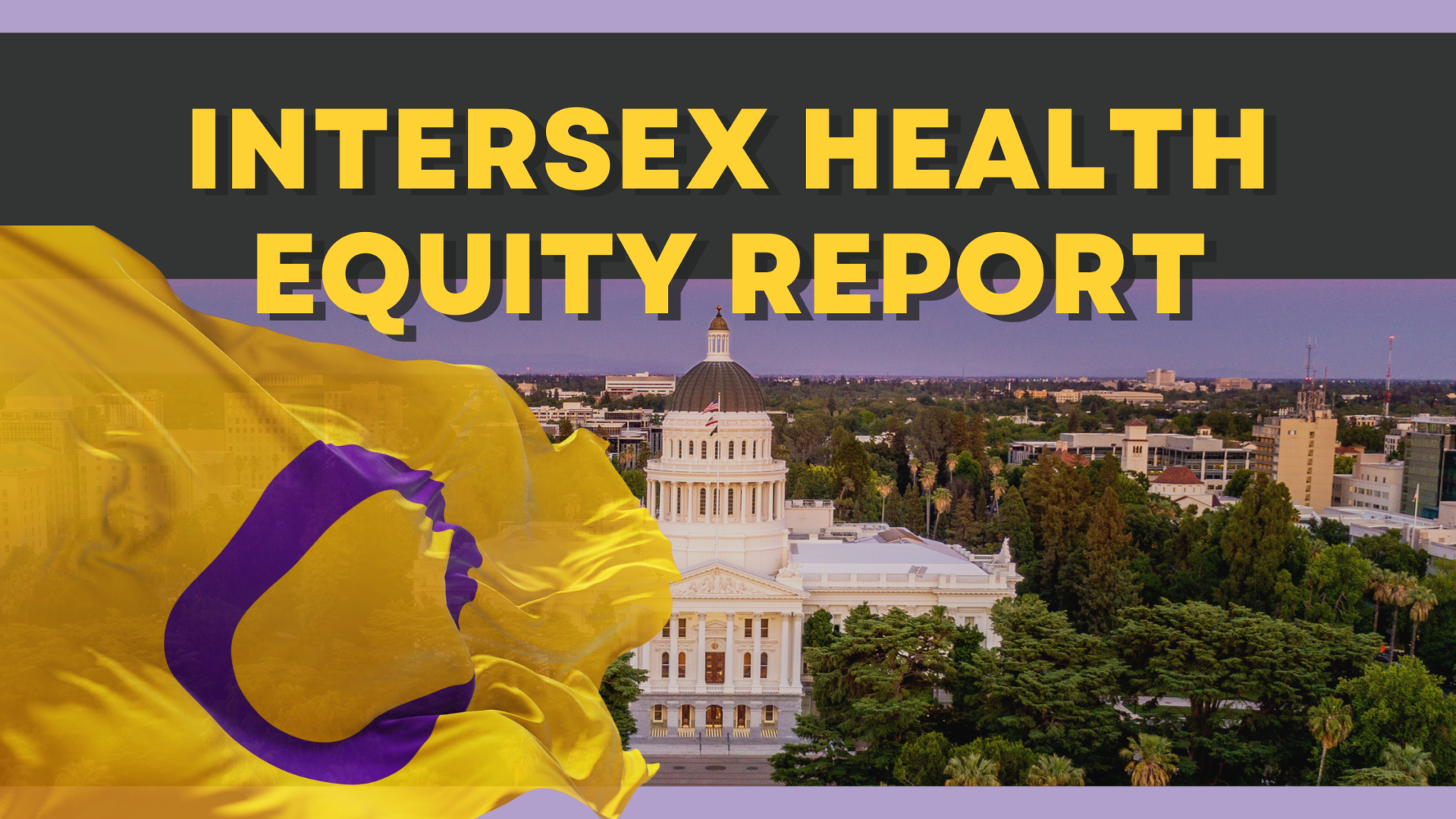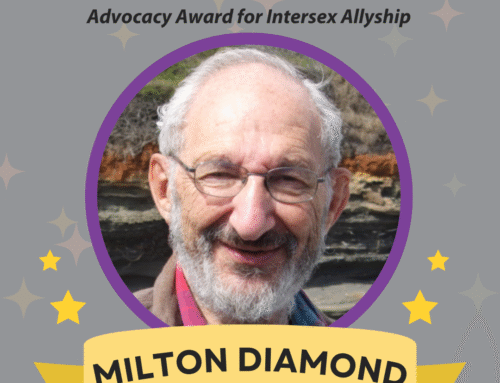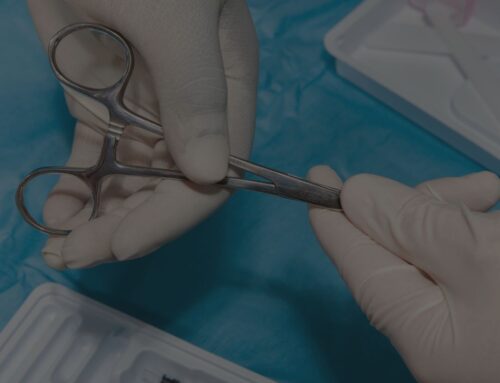
For Immediate Release: January 16, 2025
Press contact: Sylvan Fraser Anthony, Legal and Policy Director – sfraser@interactadvocates.org
Today, the US Department of Health and Human Services (HHS) released a groundbreaking report on intersex health, linking the ongoing practice of non-consensual surgery on intersex infants to harmful outcomes and health disparities. It names the denial of bodily autonomy in these childhood medical decisions as a “key barrier” to health equity for intersex people. View the report here (Note: this has been removed from HHS’s site since the Trump administration took office. It will continue to remain accessible on our website.)
This milestone report is the strongest statement from a US federal agency on intersex bodily autonomy to date.
The report recognizes the “well-documented medical harms to intersex people across their lifespan resulting from childhood medical interventions performed when the child was too young to participate in decision-making,” yet observes that medical providers still recommend these practices against growing evidence.
Remedying this pattern, according to the report, will require not only education and outreach to families and medical providers, but also changes to laws and policies. Specifically, HHS recommends changes to “promote bodily autonomy and informed consent” by “ensuring all non-emergent care is guided by the express wishes of the intersex individual themselves.” The report also names significant barriers facing intersex adults, including discrimination, denial of care, and lack of knowledgeable providers, and makes recommendations for inclusive training.
“This report is a victory for the right of intersex children to make their own choices about their own bodies,” said interACT’s Executive Director Erika Lorshbough. “Non-consensual surgeries intended to alter a child’s sex traits to fit male or female boxes have major repercussions such as trauma and health complications later in life. interACT is encouraged to see a report by the Department of Health and Human Services acknowledge this fact, caution against these harmful practices, and recommend a whole-health approach to intersex care.”
“With today’s report, HHS clearly recognizes that intersex health equity is thwarted by subjecting infants and young children with variations in their sex characteristics to non-emergency surgical interventions to which they cannot consent. Those who still perform such procedures must comprehend the direct link between the deprivation of bodily autonomy and the poor outcomes their patients go on to suffer. This report also should prompt medical providers to consider the legal liability inherent in a practice that treats a variation from sex stereotypes as a justification for exposure to harm,” says Sylvan Fraser Anthony, Legal and Policy Director at interACT.
####
Background
INTERSEX PEOPLE AND HEALTH
- “Intersex” refers to a range of innate variations in a person’s physical sex characteristics, such as chromosomes, genitals, gonads and other internal reproductive organs, and how the body produces and responds to hormones. About 2% of people are intersex.
- Intersex traits might be noticeable at birth, or they might not be discovered until later in childhood, around adolescence, or during adulthood. Not everyone who has an intersex variation is aware of it, and some people don’t use intersex terminology to refer to their variations. (They might use the term “differences in sex development” instead, or the name of their diagnosis if they know it.)
- Being intersex is not the same as being transgender or nonbinary (although some transgender and nonbinary people also happen to be intersex).
- Variations in sex characteristics are not inherently a medical problem, yet intersex people face troubling disparities in physical and mental health.
- Some intersex infants and children are still subjected to the longstanding practice of nonconsensual, medically unnecessary surgical interventions intended to make them conform to male or female stereotypes, a practice criticized by human rights bodies and health researchers.
- These practices are not the same as gender-affirming care, which is consensual and affirming healthcare for transgender adolescents. Rather, childhood intersex surgeries are nonconsensual—occurring frequently before the age of 2—medically unnecessary and frequently result in harmful outcomes such as loss of sensation and sterilization.
HHS INTERSEX HEALTH EQUITY REPORT
- The report’s release comes after President Biden’s Executive Order on Advancing Equality for LGBTQI+ Individuals, which directed HHS to develop the report as part of a comprehensive initiative to address health disparities facing LGBTQI+ youth and adults.
- The US government has begun in recent years to recognize discrimination on the basis of intersex variations as a form of sex discrimination. The State Department, Department of Education, and Department of Justice have recognized the harm and discrimination that intersex people may face on the basis of their variations in sex characteristics, and HHS’s healthcare nondiscrimination rule explicitly protected intersex individuals.
- interACT staff, affirming providers and allies on our Medical Advisory Group, and a multitude of intersex community members provided input to HHS during several listening sessions and a written comment period to inform the report.






